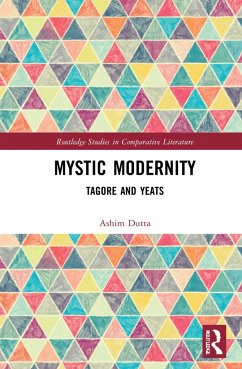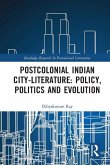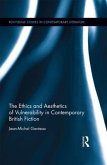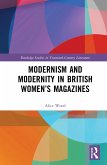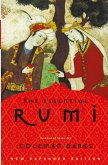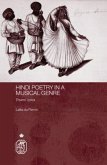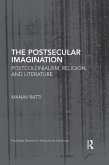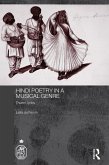This is a transnational and bilingual investigation of the cross-fertilisation of mystical religiosity and modern poetical imagination in the works of the Bengali poet Rabindranath Tagore and the Irish poet W. B. Yeats. The book demonstrates how their commitments to transnational mysticism deeply form and inform the modernist literary projects of these poets as well as their understanding of cultural modernity. Although its primary interest lies in their poetry and poetics, the monograph also includes some of their relevant prose works. This study begins with a close look at and around the phase of 1912-1913, when Yeats and Tagore met over the collection of the latter's English translations of his spiritual verses, Gitanjali, and took mutual interests in each other's works and cultural significances. The monograph then expands on both sides of that phase, selectively covering the whole career of the poets in its exploration of their parallel mystic-modern cultural-poetical projects.
Hinweis: Dieser Artikel kann nur an eine deutsche Lieferadresse ausgeliefert werden.
Hinweis: Dieser Artikel kann nur an eine deutsche Lieferadresse ausgeliefert werden.
"Mystic Modernity: Tagore and Yeats is a brilliant account of the relationship between the two poets, written by a scholar expert in both Bengali and Irish literary traditions. With careful attention to biographical as well as poetic sources, Dutta analyzes a friendship grounded in spiritual interests outside the conventions of modernism."
Lucy McDiarmid, Marie Frazee-Baldassarre Professor of English, Montclair State University
"Ashim Dutta's book is long overdue, for the affinities between Tagore and Yeats that brought them together needed to be contextualized from a perspective considering contemporary mystical modes and transnational exchanges. Based on extensive research and sustained analysis, Dutta's work offers new insights into the transcontinental cross-currents stimulating creative minds in the early modern era."
Fakrul Alam, UGC Professor, Department of English, University of Dhaka
"Dutta's book recreates the Tagore and Yeats relationship in wholly original terms, offering an account of two poets who engaged very closely in a shared poetical project of mystical modernism. Dutta insists that we take their heterodox spiritual beliefs very seriously indeed, as both a complement and a challenge to conventional politicised readings."
Matthew Campbell, Professor of Modern Literature, University of York
"Bypassing narratives that force readers to choose between secular/modern or mystical/spiritual readings of W. B. Yeats and Rabindranath Tagore, Ashim Dutta expertly insists on both. Dutta's deeply informed study, a model for bilingual and transcultural research, shows that the syncretic and eclectic mysticism of both writers is intrinsically modern, and equally that their distinct modernities are inextricably mystical. Dutta's sensitive readings of writers who famously admired and misunderstood each other leads to precise re-calibrations of each. This is a brilliant study, strikingly original and utterly convincing."
Margaret Mills Harper, University of Limerick
Lucy McDiarmid, Marie Frazee-Baldassarre Professor of English, Montclair State University
"Ashim Dutta's book is long overdue, for the affinities between Tagore and Yeats that brought them together needed to be contextualized from a perspective considering contemporary mystical modes and transnational exchanges. Based on extensive research and sustained analysis, Dutta's work offers new insights into the transcontinental cross-currents stimulating creative minds in the early modern era."
Fakrul Alam, UGC Professor, Department of English, University of Dhaka
"Dutta's book recreates the Tagore and Yeats relationship in wholly original terms, offering an account of two poets who engaged very closely in a shared poetical project of mystical modernism. Dutta insists that we take their heterodox spiritual beliefs very seriously indeed, as both a complement and a challenge to conventional politicised readings."
Matthew Campbell, Professor of Modern Literature, University of York
"Bypassing narratives that force readers to choose between secular/modern or mystical/spiritual readings of W. B. Yeats and Rabindranath Tagore, Ashim Dutta expertly insists on both. Dutta's deeply informed study, a model for bilingual and transcultural research, shows that the syncretic and eclectic mysticism of both writers is intrinsically modern, and equally that their distinct modernities are inextricably mystical. Dutta's sensitive readings of writers who famously admired and misunderstood each other leads to precise re-calibrations of each. This is a brilliant study, strikingly original and utterly convincing."
Margaret Mills Harper, University of Limerick

